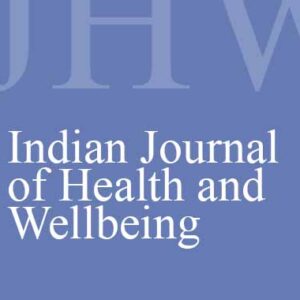
Healthy Ageing among Elderly from a Eudaimonic Viewpoint: A Conceptual Approach
Original price was: ₹ 201.00.₹ 200.00Current price is: ₹ 200.00.
Pages: 232-236
Nambiar Veena Chindankutty and D. Dhanalakshmi (Department of Applied, Psychology, Pondicherry University, Pondicherry)
Ageing is an inevitable ongoing process of change integral to all living organisms. It is characterized by a progressive deterioration in the biological, mental and social functioning of an individual. Therefore we are bound to prepare for embracing this phenomenon gracefully and explore possibilities of enhancing well-being among the elderly. India’s elderly population is projected to rise 41 per cent by 2031 (National Statistical Office, 2021) which shows a dire need for approaching healthy ageing. A few decades ago elderly enjoyed a special place in the Indian family structure but with the advent of urbanization, youngsters have started moving out of the family settings. This has placed the elderly in a vulnerable situation wherein they are either left alone or required in the family for taking care of home and children. Though initially pleasurable it may be taxing as time progresses due to the deterioration of health which eventually affects their overall well-being. Hence this conceptual paper attempts to address the significance of healthy ageing from a eudaimonic perspective of well-being emphasizing the dimension of Purpose in Life propounded by Ryff and Singer (2008) in their model of psychological well-being. This model comprises six key dimensions which are foundational for the process of living well and one among them is Purpose in Life (PIL). It is a promising dimension of eudaimonic well-being which undergoes transition across different phases of life and is associated with better engagement in activities, health outcomes and physical functioning during older adulthood. This signifies the essentiality of addressing PIL for enhancing the eudaimonic well-being of the elderly, which contributes to the process of healthy ageing. Hence this paper highlights the significance of developing Purpose in Life among the elderly by emphasizing the need for engaging themselves actively for their well-being and betterment of society rather than surmising old age as frivolous. This paper underscores the need for recommendations from health care professionals and government policymakers in initiating and implementing meaningful purposes for enhancing eudaimonic well-being among older people.
Description
Pages: 232-236
Nambiar Veena Chindankutty and D. Dhanalakshmi (Department of Applied, Psychology, Pondicherry University, Pondicherry)
